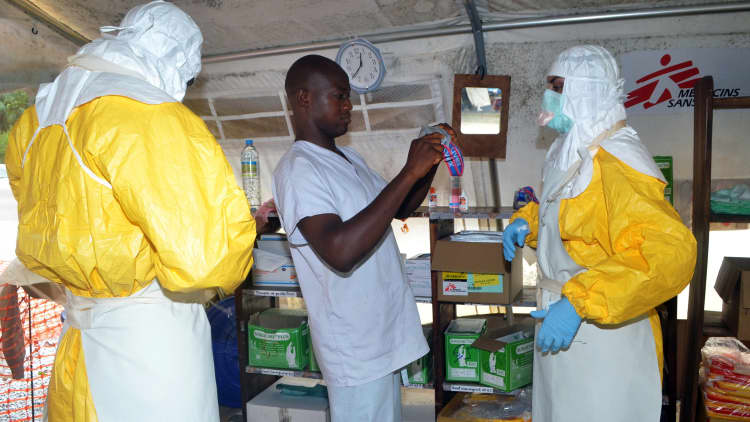The outbreak of the Ebola virus in West Africa is an "extraordinary event" and a public health risk to other countries, the World Health Organisation (WHO) has warned.

All of the countries where there has been a breakout of the disease – currently: Guinea, Liberia, Sierra Leone, and Nigeria – should declare a national emergency, WHO recommended. This is already the longest and most deadly outbreak of Ebola recorded, since the virus was first identified in 1976. WHO said 932 people have already died as a result of the epidemic.

Keiji Fukuda, the WHO's head of health security, told reporters: "This is not a mysterious disease. This is an infectious disease that can be contained. It is not a virus that is spread through the air."
The breakout is particularly worrying to the international health body because of the poor health systems in these countries, the "virulence" of the virus, and its transmission patterns, which show that it has passed quickly through communities and hospitals.
However, international travel and trade should continue as normal, WHO said.
The epidemic started in Guinea in March, then spread to Liberia and Sierra Leone. Five cases have now been confirmed in Nigeria, the continent's most populous country.
Two American aid workers and a Spanish priest have been flown home to be treated for the virus.
The Ebola outbreak has highlighted many of the problems faced by those treating the disease - primarily, that there is no cure for it. A treatment which has only previously been trialed on animals is being used on the two Americans, in an almost unprecedented speeding up of the clinical trial process.
There are also concerns about the economic impact of the epidemic. Economic growth in Guinea, Liberia, and Sierra Leone is expected to be hit in the short term, according to Ama Egyaba Baidu-Forson, senior Sub-Saharan Africa economist at IHS.
- By CNBC's Catherine Boyle




